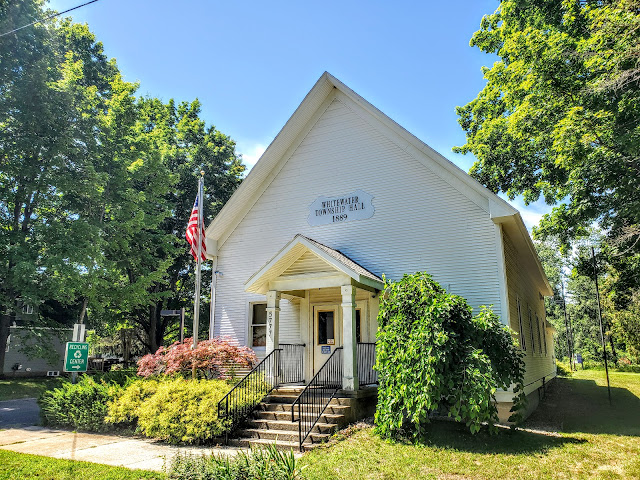LOCAL BEAT: Whitewater Township
The supposed benefits of running government like a business have been roundly debunked many times over. Woodrow Wilson unsuccessfully pitched the idea in 1887. But the myth is nowhere more enduring than in rural and small-town America. Here, dividing lines between family, business and government tend to dissolve, leaving us to wonder how real they ever were or are – here or elsewhere.
On a rural or semi-rural township board of trustees, several seats are typically held by salaried municipal administrators: clerks, supervisors, treasurers and the like. Most have other significant business interests in the area in some combination to their municipal income.
The boards and commissions for Whitewater Township oversee the northeastern corner of Grand Traverse County. Farm pastures, orchards and protected state lands constitute a lot of space in the community, to the general liking of many. Development has been slow more than steady, with regular construction of luxury homes amidst the idyllic open spaces, forests, waterways and inland lakes which characterize the place. More recent development pressures include a horse show in the neighboring township to the west that has risen to significant prominence. Its promotional materials boast that the wider area is now the most popular zip code in the nation for millennial millionaires.1
The government hall, built in 1889, sits roughly at the township's center in the unincorporated village of Williamsburg. The members of the governing board of trustees are a bit older than median for the area. This makes more remarkable the schoolyard-fight quality of their interactions and, across all the boards and commissions, the depth of divisions and controversies in what many might perceive as a homogenous community. The trustees' monthly meetings go on for hours, covering agenda packets that are hundreds of pages long. The packet for August's meeting included over 30 pages of accusatory, passive-aggressive email exchanges.
Journalists and editors don't very often seem to consider events in the area relevant to the public interest. The major newspaper in the area has lately reported mostly on a minor scandal arising out of culturally backwards attitudes on race and the community's reaction to the growth of the cannabis industry in Michigan.
A smaller newspaper that distributes a free weekly via mail to most of the township's households is based in the township to the north. This paper reported on public meetings in Whitewater Township in years past, but stopped for reasons that the publisher left deliberately vague. Last spring, the paper began running stories on meetings of the township board of trustees. The beat was canceled after a few stories, when the township clerk emailed to demand a correction over the omission of a detail.
In any democracy or facsimile thereof, an election victory is presumed to be the first in a series of frauds perpetrated on the public. Constant presumption of bad faith creates an environment where those skilled in duplicity enjoy a paradoxical advantage over the guileless. If no one will believe you anyway, what would you rather?
Elected and appointed small-town officials use a number of tactics to influence narratives concerning their activities. Some withhold agenda packets from the media and public. Some hold special meetings early in the morning in the middle of the week. Others conduct long executive sessions in the middle of a meeting and vote on motions immediately upon resuming the "open meeting," with no audience present.
Usually these practices are side-noted, if at all, in reports that are primarily focused on the events. This series will put them front and center.
Aug. 9, 10:40 a.m. - Hybrid virtual/in-person regular meeting of the Whitewater Township board of trustees
The agenda released for this meeting indicated that the Zoom meeting would start at 11:00 a.m. At 10:40 the meeting has apparently been in session since 9:00 a.m., the start time indicated at the top of the agenda. The trustees are discussing online access to meetings as a matter of accessibility rights. Someone says that virtual users are identifiable in a similar way to in-person attendees. Someone else suggests that people are logged in with their names. Not everyone, says Cheryl Goss, clerk. A question in the Zoom chat is visible to all participants.
10:42:10 From Reporter: Has this meeting been called to order?
Aug. 10, 4:11 p.m. - phone call to town hall, clerk ext.
The phones have been out all week, until just minutes before this call, says Goss. Lucky me, I reply. I ask when Lossie Trail will reopen. Goss says work is in progress but she cannot not provide a finish date. Call ended.
Aug. 12, 1:35 p.m.

Comments
Post a Comment